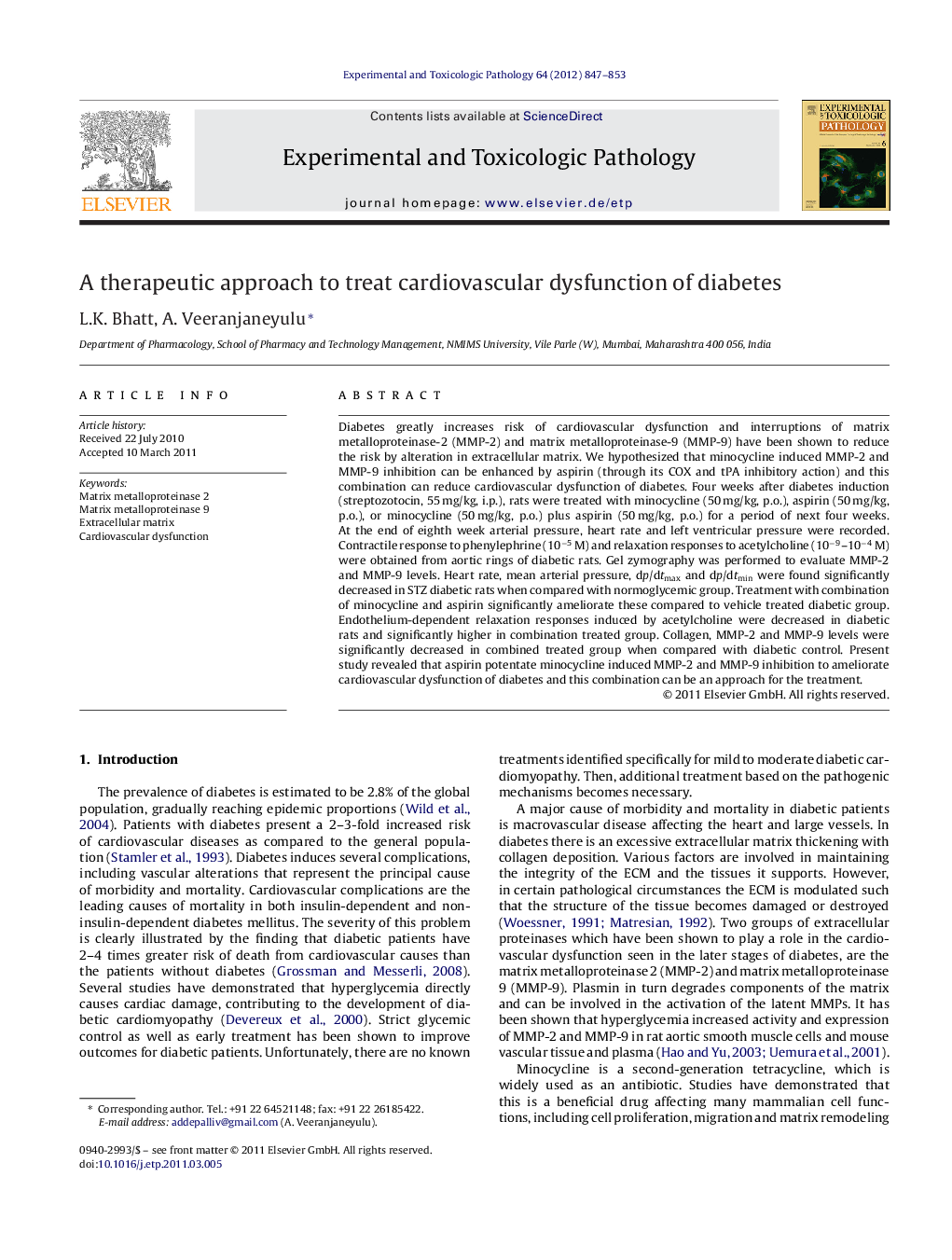| Article ID | Journal | Published Year | Pages | File Type |
|---|---|---|---|---|
| 2499331 | Experimental and Toxicologic Pathology | 2012 | 7 Pages |
Diabetes greatly increases risk of cardiovascular dysfunction and interruptions of matrix metalloproteinase-2 (MMP-2) and matrix metalloproteinase-9 (MMP-9) have been shown to reduce the risk by alteration in extracellular matrix. We hypothesized that minocycline induced MMP-2 and MMP-9 inhibition can be enhanced by aspirin (through its COX and tPA inhibitory action) and this combination can reduce cardiovascular dysfunction of diabetes. Four weeks after diabetes induction (streptozotocin, 55 mg/kg, i.p.), rats were treated with minocycline (50 mg/kg, p.o.), aspirin (50 mg/kg, p.o.), or minocycline (50 mg/kg, p.o.) plus aspirin (50 mg/kg, p.o.) for a period of next four weeks. At the end of eighth week arterial pressure, heart rate and left ventricular pressure were recorded. Contractile response to phenylephrine (10−5 M) and relaxation responses to acetylcholine (10−9–10−4 M) were obtained from aortic rings of diabetic rats. Gel zymography was performed to evaluate MMP-2 and MMP-9 levels. Heart rate, mean arterial pressure, dp/dtmax and dp/dtmin were found significantly decreased in STZ diabetic rats when compared with normoglycemic group. Treatment with combination of minocycline and aspirin significantly ameliorate these compared to vehicle treated diabetic group. Endothelium-dependent relaxation responses induced by acetylcholine were decreased in diabetic rats and significantly higher in combination treated group. Collagen, MMP-2 and MMP-9 levels were significantly decreased in combined treated group when compared with diabetic control. Present study revealed that aspirin potentate minocycline induced MMP-2 and MMP-9 inhibition to ameliorate cardiovascular dysfunction of diabetes and this combination can be an approach for the treatment.
